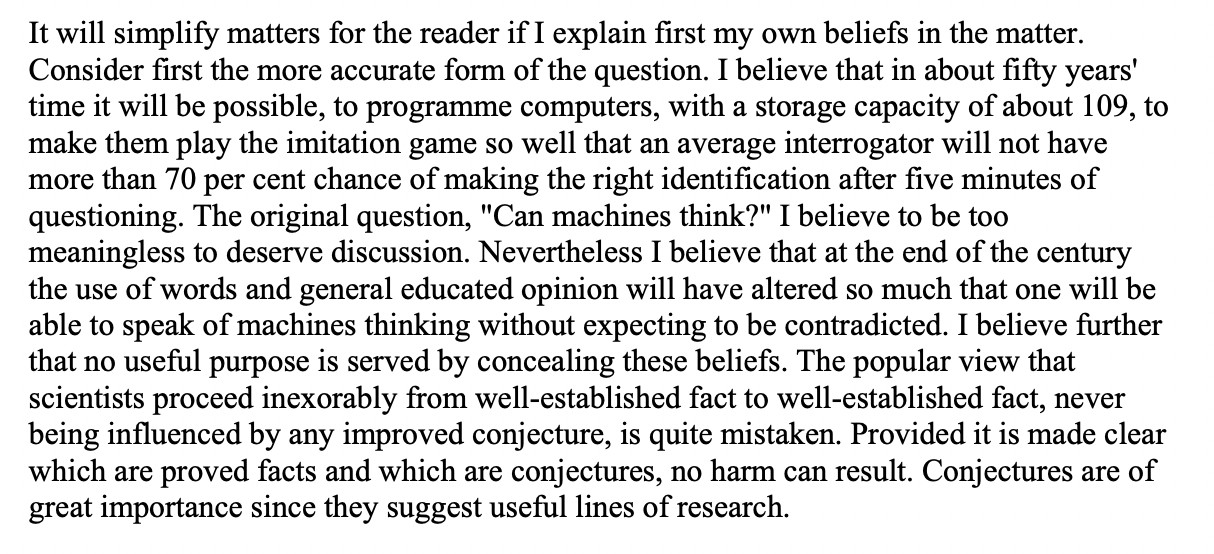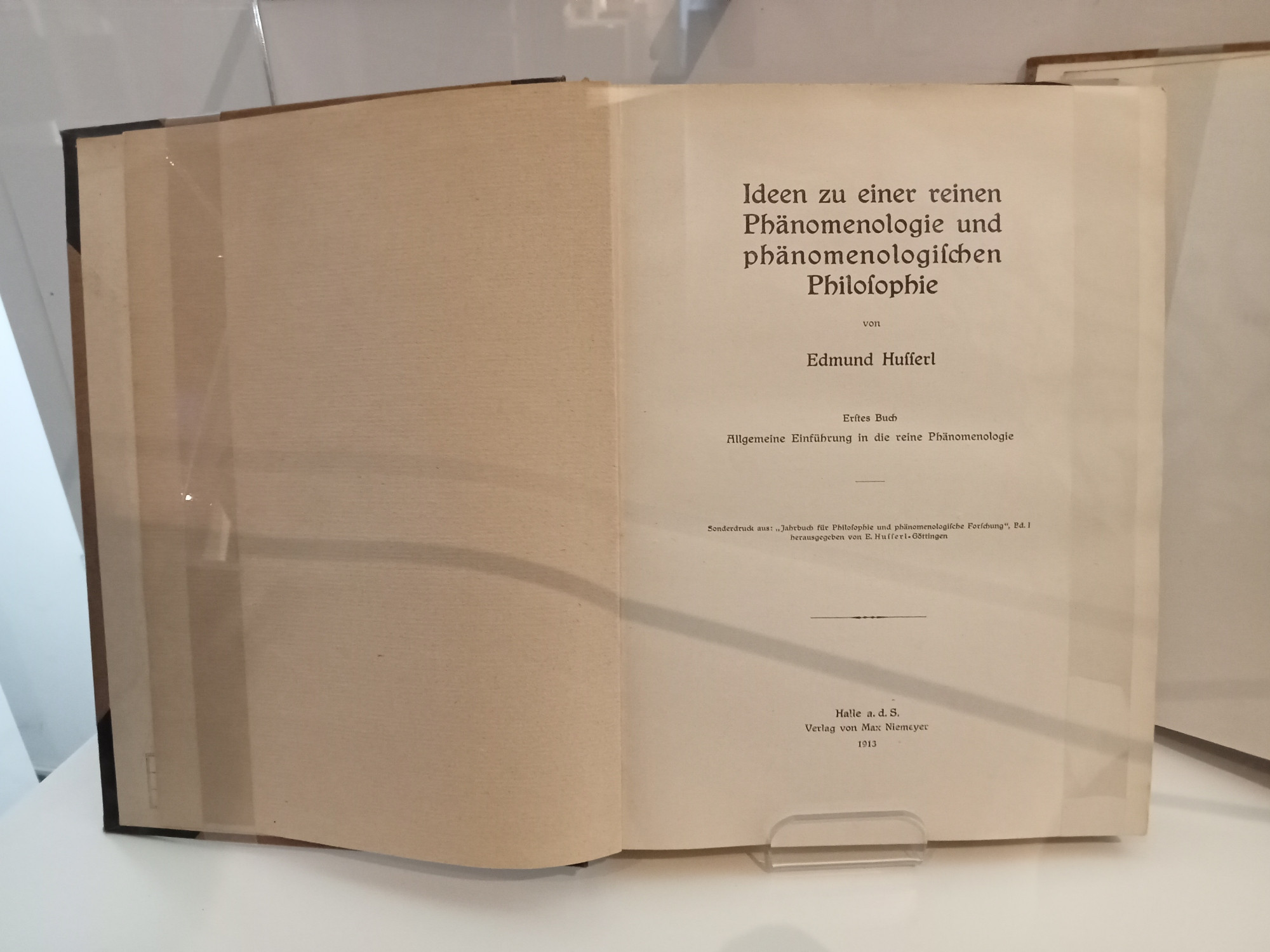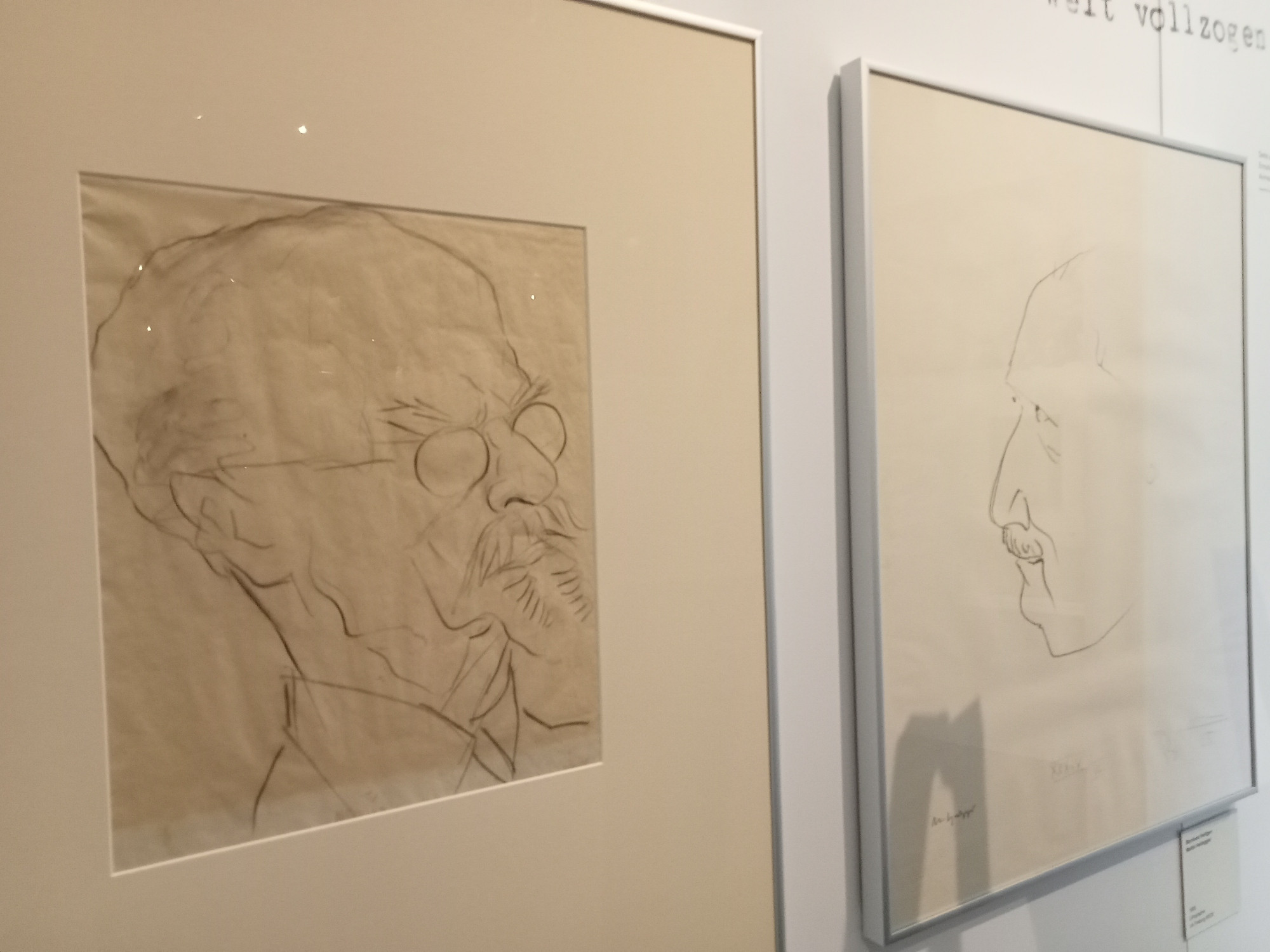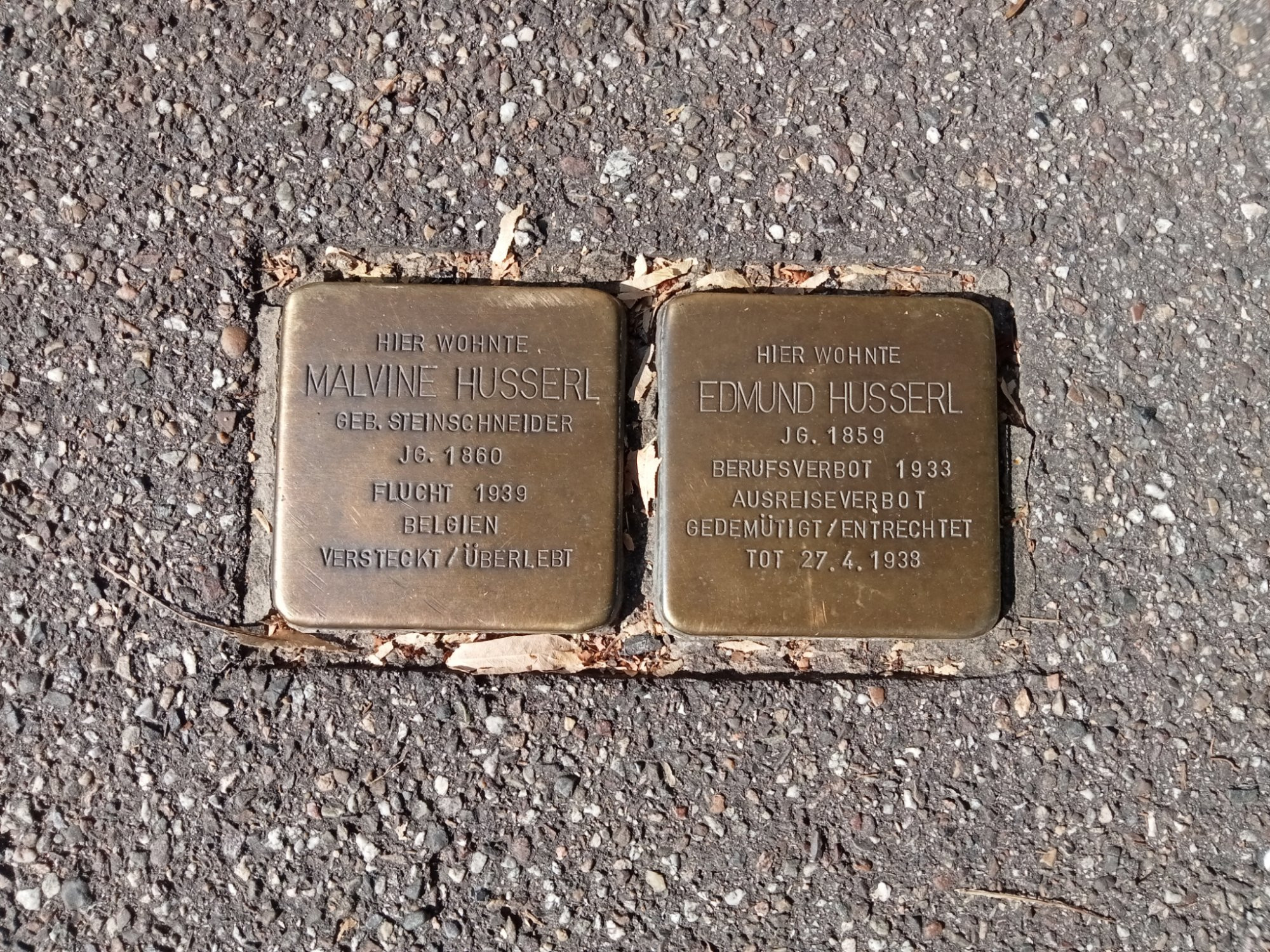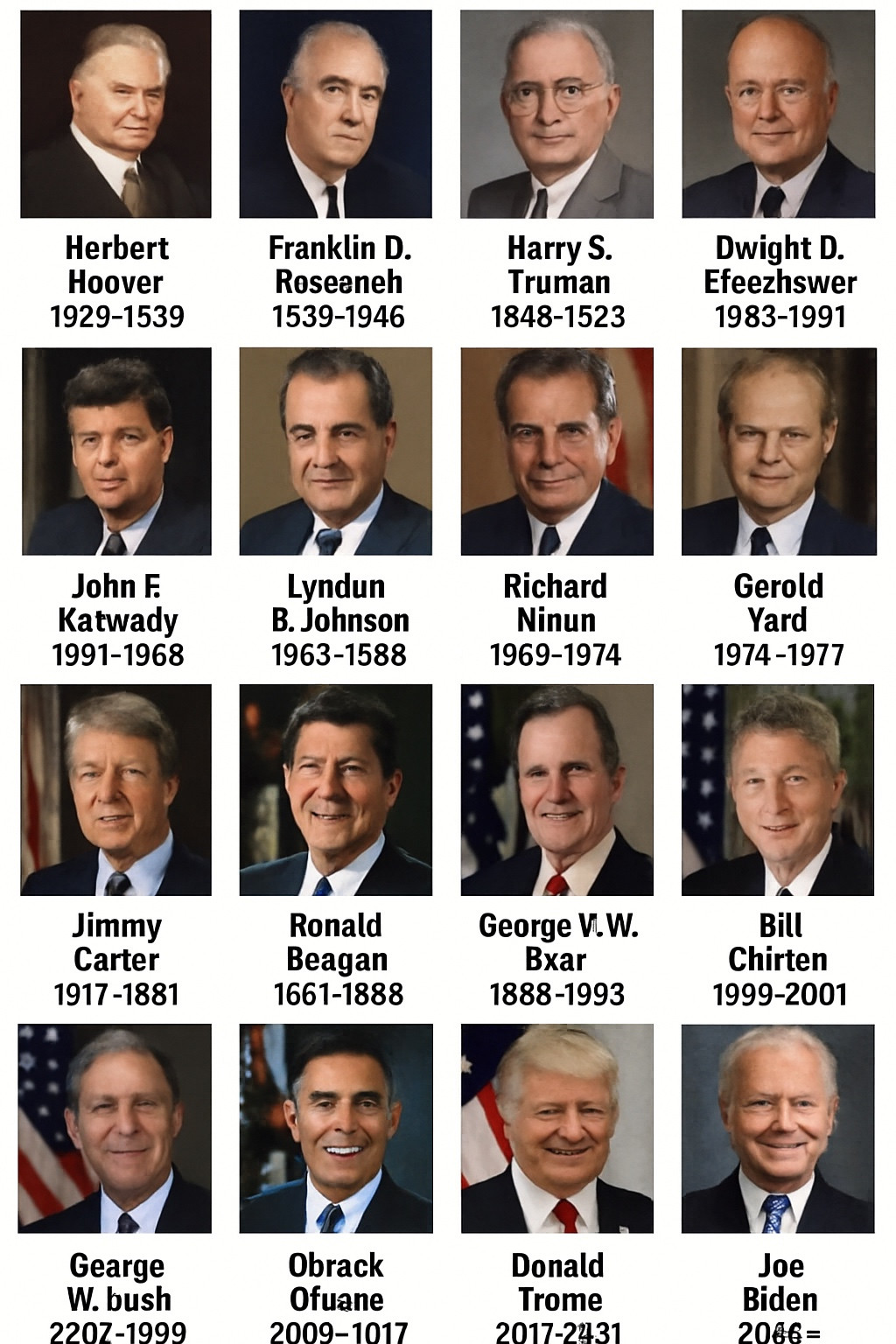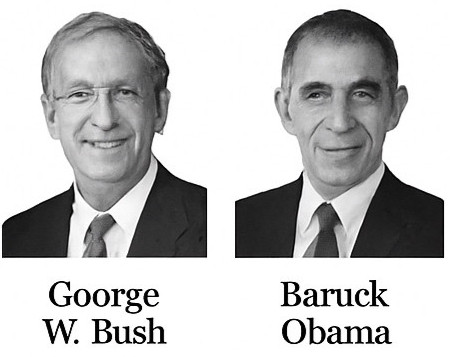more broadly, people have worried about human creative activities being emulated by nonhuman automata for centuries. here's Johann Joachim Quantz writing in the 18th century about the philosophical implications of musical automata (from David Yearsley's "Bach and the Meanings of Counterpoint")
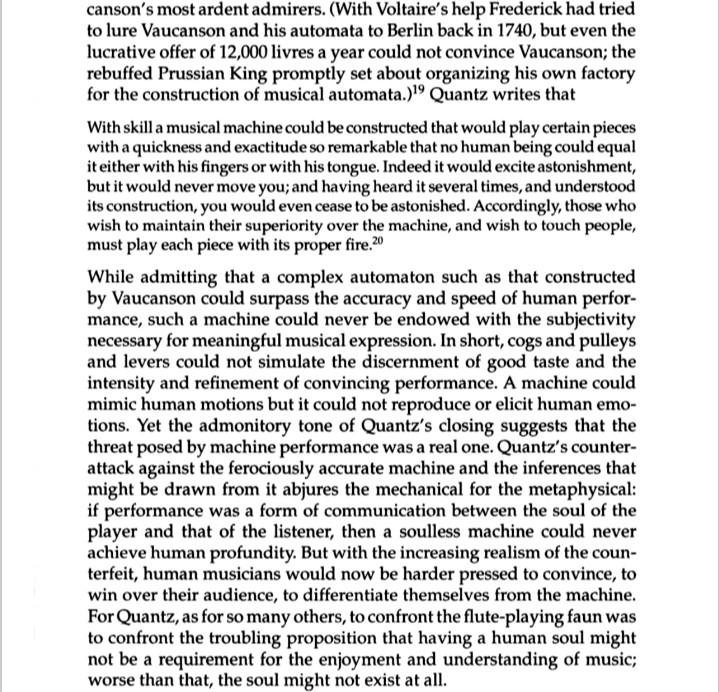
one other thing about the LLM discourse: a common thing for people excited about AI to say is that until a few years ago, everyone assumed the spontaneous generation of grammatical text was, in principle, uniquely human. that's just not true. here's what turing wrote in 1950, not far off, really!
